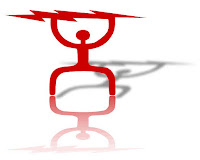 We all know about managing our time, and may be pretty good at it. But are you aware that it is just as if not more important to manage your energy? When you are not focused on how you are committing, expending, and replenishing your energy stores, you are far less effective in all areas of life and work. It’s about being strategic and tactical in how you organize yourself.
We all know about managing our time, and may be pretty good at it. But are you aware that it is just as if not more important to manage your energy? When you are not focused on how you are committing, expending, and replenishing your energy stores, you are far less effective in all areas of life and work. It’s about being strategic and tactical in how you organize yourself.To follow is a select list of useful approaches for managing your time and energy. While there are a million and one techniques, here are some of my best practices:
Powerfully Use Your Calendar
Of course, this is the starting point. Regardless of whether you prefer paper or electronic, the important part is to honor your schedule as a declaration of your commitment to yourself and others. Stick to it, but also be flexible enough to adjust your approach as needed.
- Take Stock – Do an honest evaluation of how you are really using your time. Just like the budget exercise of writing down every penny you spend to understand your habits, it’s good to track your time for a week or two. Notice what you are doing, when, and how long it generally takes to complete each task. Make adjustments to your scheduling as necessary.
- Match Energy to Activities – There are times of day when we are better at specific activities, and it’s important to think about when is best for you. For example, I prefer to do my writing, technical analysis, and tasks requiring the most intense thought first thing in the morning. While I can certainly do them later, I like to tackle them while I’m fresh and less distracted. I schedule exercise in the afternoon around lunch hour when I need a break and can use an energy boost.
- Plan Your Week – Taking time to think about your week before it begins better sets you up for success. Sunday evening is great for this because it allows you to reflect on your previous week (what worked and didn’t), capture the items you want to carry forward, and start blocking out your schedule.
- Pay Yourself First – Block out times in your calendar for self-care and what’s important to you. Some of these may be: wake/rest time, exercise, dates with your spouse, activities with your children, creative time, commitments to self/others, etc.
- Schedule Positive Habits – Just like paying yourself above, your calendar can support you in creating and maintaining any positive habits you are trying to establish. You may put in simple things throughout the day like meal planning, working out, or even reminders to breathe.
- Block Out DNS Time – Because I know I need time to myself where I don’t have any activity scheduled, I make sure of it by putting DNS (“do not schedule”) blocks down periodically. If something comes up, instead of removing it, I’ll shift it to another day close by.
- Allow Buffer Time – It’s a general rule of thumb that everything takes longer than you initially think it’s going to. When planning, be sure to not only tack on a little breathing room for each activity, but also put buffer time before and after.
- Anticipate Travel Time – If you have appointments at different locations, be sure to build into your schedule travel time to get from Point A to Point B. Punctuality is not only about respect for the other party, but proper planning will allow you to feel less stressed and rushed.
- Plan Your Procrastination – I wrote a whole blog post about this HERE, but I can’t emphasize this enough. Know you will likely put off some things, or they may simply get pushed back by unanticipated issues. Anticipate that and build that into your schedule.
- Commit 5 Minutes in the Morning – When you first get up, take a quick look at your calendar and mentally prepare yourself for your day ahead. Check for discrepancies, and add additional items like “return call to X” so you make the time to be on top of some of your to-do items.
This is a huge time and energy suck. While it’s essential to our productivity, it’s important to keep an eye on this.
- Hold Off on Logging On – Don’t start your day with getting on your email. This is doubly true for entrepreneurs. Email pulls you in and it’s hard to get out. There are few emails that can’t wait an hour after you get out of bed. Do your self-care and grooming activities, review your day, and take care of tasks that require the most focus.
- Sort with Filters – Go through your email and set up automatic filters for different types of email. Send your reading and subscriptions into one folder, your daily deals/shopping into another, and your social media (Facebook, LinkedIn, etc.) into another. Etc. You’ll have less email in your inbox, and will be less distracted by miscellany. You can also go to each folder, do a quick scan, and delete en masse.
- Keep your Inbox Tidy – When done with messages, consider deleting or filing them away as soon as you can. This will minimize the amount of messages sitting in your box.
- Star/Flag Messages – You don’t have to respond to everything right away. Scan your messages, deal with most important first, and use the “star” or “flag” to mark messages you want to deal with later.
- Use RSS Feeds and Instapaper – Consider deleting your newsletter subscriptions and set up RSS feeds instead so that they can be directed to your favorite feed reader. For web pages that you’d like to read later, consider using Instapaper or something like it so that you can tag them and come back to them later. Subscribe to the RSS feed for Instapaper and you can have it directed to your reader so you can read them when you have time.
- Purge Your Inbox – Once in a while, we just have to start over. Scan your messages for key items you really want to keep and delete everything else. There are likely many messages you’ve been holding onto like old magazines, thinking you’ll get around to reading them. And just like old magazines, you have to throw them out periodically when they pile up.
- Schedule Times for Review – Don’t keep your email open all the time if you can help it. It is a terrible distraction and a great excuse for procrastination. Set up specific times of day when you check your email. You can even go so far as to do an auto-reply that states the times when you reply to messages.
Some don’t like to call it a “to-do list,” but we all have them. Whatever name you want to call it that empowers you, but be sure you capture running tasks somewhere.
- Separate Tasks from People – Keep your list of actions separate from your people. Managing relationships is more than a to-do, and an essential part of being successful in life and business. Make sure you have a place to capture the people you want/need to get back to, and schedule chunks of time each day to do so.
- Tackle Low-Hanging Fruit – To feel accomplished, make sure you write down and cross off the easy items. If you’re an achievement oriented person, this will make you feel great.
- Prioritize Action Items – While low-hanging fruit is attractive, be sure you are prioritizing the A, B, and C priority items appropriately and that you are tackling at least one A and B item every day. You’ll feel forward momentum, and be less likely to continually procrastinate.
- Delegate – Remember that being successful requires that you involve other people. You don’t have to do everything yourself. Consider items that you can delegate to other people, and go ahead and make the request.
- Review and Plan – Just as in the calendar section above, include a review of your to-do list in your planning for the week, and in your 5 minutes in the morning. You’ll better be able to anticipate how you want/need to use your time and energy.
All of the suggestions above have the power to positively enhancing your energy stores if executed appropriately and effectively. Here are some additional suggestions for impacting the energy you have available to you.
- Practice Self-Care – This is crucial. Read my blog post HERE for suggestions. Also consider implementing a Morning Workshop so you have some specific daily practices.
- Just Say No – We are often guilty of saying Yes more than we say No, for a variety of reasons. Create a list of what you will say Yes/No to and honor yourself and others by not overcommitting. Consider practicing saying No 10 times a day or instituting a 30-minute wait time before saying Yes to anything.
- Eliminate Clutter – It’s a distraction and saps your energy. This includes both physical clutter in your living and work spaces, as well as mental clutter (including relationships that no longer serve you). Look for ways to clear this out and focus on clutter-free living.
- Create a Toleration Checklist – Like clutter, there are many things we simply tolerate. Read this blog post on creating a list of things you are tolerating and commit to tackling them.
- Clean Up Your Integrity – When your integrity is out, you feel bad about yourself and you create a space for others to be out of integrity with you. This is mental clutter and is a power sap. Identify where you are out of integrity with yourself and others. Include everything: unreturned phone calls and email, bills that need to be paid, an unclean bathroom, an apology you need to give. Take it one action at a time. Regain your power!
- Reframe Obligation – You are the only one who can make yourself feel obligated. Choose carefully and stand by your choice. Give without feeling obligated. If you are feeling obligated, don’t do it – unless you are willing to give that up.
- Refresh Your Relationships – Check in with people around you to keep your relationships fresh and current. Consider this blog post on the Relationship Compact for recommendations on how to do this.
We are used to being lone rangers in our lives, and forget that we have a whole network of people to support us – if we are willing to reach out and to allow them to assist.
- Create Accountability Structures – Share with people what you are up to and request that they ask you “how it’s going.” Appoint people as accountability holders and schedule times when you will check in
- Team with Others – Share with more than one person and create a supportive team around you. Use your team for accountability. Buddy up with others to have them play along.
- Make Requests – Make more requests of people around you. Don’t be shy – people are more than happy and willing to support you. Be open to receiving contribution – they love you for it.
- Get Support – Hire a coach. Get a therapist. Talk with a friend. Ask for help – there is no shame in it.







No comments:
Post a Comment